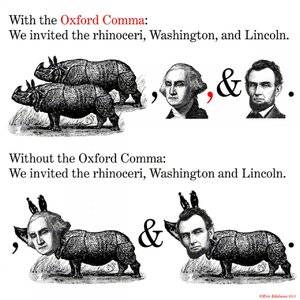- Joined
- Jan 26, 2003
- Messages
- 22,146
This morning I was watching MSNBC and I heard the substitute host read an except from a column, today's column in "The Washington Post", by George F. Will. I was breath taken by the beauty of the writing. Not only was his vocabulary great, making me think that I had not used words like the ones he used in many years, but the analogies he made were creative and thoughtful. I realized that I have been reading too many books written by authors with inferior vocabularies and, probably, inferior minds. I never hear or read really good speech or writing anymore.
I am going to post excerpts of his column here. I do not deny that his political message has great meaning to me, but so does his writing. I used to read a lot of English writers who wrote in the nineteenth and early twentieth centuries. I now read contemporary American, British, and Australian authors. The writing is very different. The vocabulary used now is far less rich.
I invite you to post examples of authors whom you feel use language well!
George F. Will's column excerpted below.
"America’s child president had a play date with a KGB alumnus, who surely enjoyed providing day care. It was a useful, because illuminating, event: Now we shall see how many Republicans retain a capacity for embarrassment.
Speaking of Republicans incapable of blushing — those with the peculiar strength that comes from being incapable of embarrassment — consider Sen. Lindsey O. Graham (S.C.), who for years enjoyed derivative gravitas from his association with Sen. John McCain (Ariz.). Graham tweeted about Helsinki: “Missed opportunity by President Trump to firmly hold Russia accountable for 2016 meddling and deliver a strong warning regarding future elections.” A “missed opportunity” by a man who had not acknowledged the meddling?
Contrast Graham’s mush with this on Monday from McCain, still vinegary: “Today’s press conference in Helsinki was one of the most disgraceful performances by an American president in memory.” Or this from Arizona’s other senator, Jeff Flake (R): “I never thought I would see the day when our American president would stand on the stage with the Russian President and place blame on the United States for Russian aggression.” Blame America only.
Defense Secretary Jim Mattis, White House Chief of Staff John F. Kelly, Director of National Intelligence Daniel Coats and others might believe that they must stay in their positions lest there be no adult supervision of the Oval playpen. This is a serious worry, but so is this: Can those people do their jobs for someone who has neither respect nor loyalty for them?
Like the purloined letter in Edgar Allan Poe’s short story with that title, collusion with Russia is hiding in plain sight. We shall learn from special counsel Robert S. Mueller III’s investigation whether in 2016 there was collusion with Russia by members of the Trump campaign. The world, however, saw in Helsinki something more grave — ongoing collusion between Trump, now in power, and Russia. The collusion is in what Trump says (refusing to back the United States’ intelligence agencies) and in what evidently went unsaid (such as: You ought to stop disrupting Ukraine, downing civilian airliners, attempting to assassinate people abroad using poisons, and so on, and on).
Americans elected a president who — this is a safe surmise — knew that he had more to fear from making his tax returns public than from keeping them secret. The most innocent inference is that for decades he has depended on an American weakness, susceptibility to the tacky charisma of wealth, which would evaporate when his tax returns revealed that he has always lied about his wealth, too. A more ominous explanation might be that his redundantly demonstrated incompetence as a businessman tumbled him into unsavory financial dependencies on Russians. A still more sinister explanation might be that the Russians have something else, something worse, to keep him compliant.
The explanation is in doubt; what needs to be explained — his compliance — is not. Granted, Trump has a weak man’s banal fascination with strong men whose disdain for him is evidently unimaginable to him. And, yes, he only perfunctorily pretends to have priorities beyond personal aggrandizement. But just as astronomers inferred, from anomalies in the orbits of the planet Uranus, the existence of Neptune before actually seeing it, Mueller might infer, and then find, still-hidden sources of the behavior of this sad, embarrassing wreck of a man."
I am going to post excerpts of his column here. I do not deny that his political message has great meaning to me, but so does his writing. I used to read a lot of English writers who wrote in the nineteenth and early twentieth centuries. I now read contemporary American, British, and Australian authors. The writing is very different. The vocabulary used now is far less rich.
I invite you to post examples of authors whom you feel use language well!
George F. Will's column excerpted below.
"America’s child president had a play date with a KGB alumnus, who surely enjoyed providing day care. It was a useful, because illuminating, event: Now we shall see how many Republicans retain a capacity for embarrassment.
...
In Helsinki, the president who bandies the phrase “America First” put himself first, as always, and America last, behind President Vladimir Putin’s regime....
What, precisely, did President Trump say about the diametrically opposed statements by U.S. intelligence agencies (and the Senate Intelligence Committee) and by Putin concerning Russia and the 2016 U.S. elections? Precision is not part of Trump’s repertoire: He speaks English as though it is a second language that he learned from someone who learned English last week. So, it is usually difficult to sift meanings from Trump’s word salads. But in Helsinki he was, for him, crystal clear about feeling no allegiance to the intelligence institutions that work at his direction and under leaders he chose.Speaking of Republicans incapable of blushing — those with the peculiar strength that comes from being incapable of embarrassment — consider Sen. Lindsey O. Graham (S.C.), who for years enjoyed derivative gravitas from his association with Sen. John McCain (Ariz.). Graham tweeted about Helsinki: “Missed opportunity by President Trump to firmly hold Russia accountable for 2016 meddling and deliver a strong warning regarding future elections.” A “missed opportunity” by a man who had not acknowledged the meddling?
Contrast Graham’s mush with this on Monday from McCain, still vinegary: “Today’s press conference in Helsinki was one of the most disgraceful performances by an American president in memory.” Or this from Arizona’s other senator, Jeff Flake (R): “I never thought I would see the day when our American president would stand on the stage with the Russian President and place blame on the United States for Russian aggression.” Blame America only.
Defense Secretary Jim Mattis, White House Chief of Staff John F. Kelly, Director of National Intelligence Daniel Coats and others might believe that they must stay in their positions lest there be no adult supervision of the Oval playpen. This is a serious worry, but so is this: Can those people do their jobs for someone who has neither respect nor loyalty for them?
Like the purloined letter in Edgar Allan Poe’s short story with that title, collusion with Russia is hiding in plain sight. We shall learn from special counsel Robert S. Mueller III’s investigation whether in 2016 there was collusion with Russia by members of the Trump campaign. The world, however, saw in Helsinki something more grave — ongoing collusion between Trump, now in power, and Russia. The collusion is in what Trump says (refusing to back the United States’ intelligence agencies) and in what evidently went unsaid (such as: You ought to stop disrupting Ukraine, downing civilian airliners, attempting to assassinate people abroad using poisons, and so on, and on).
Americans elected a president who — this is a safe surmise — knew that he had more to fear from making his tax returns public than from keeping them secret. The most innocent inference is that for decades he has depended on an American weakness, susceptibility to the tacky charisma of wealth, which would evaporate when his tax returns revealed that he has always lied about his wealth, too. A more ominous explanation might be that his redundantly demonstrated incompetence as a businessman tumbled him into unsavory financial dependencies on Russians. A still more sinister explanation might be that the Russians have something else, something worse, to keep him compliant.
The explanation is in doubt; what needs to be explained — his compliance — is not. Granted, Trump has a weak man’s banal fascination with strong men whose disdain for him is evidently unimaginable to him. And, yes, he only perfunctorily pretends to have priorities beyond personal aggrandizement. But just as astronomers inferred, from anomalies in the orbits of the planet Uranus, the existence of Neptune before actually seeing it, Mueller might infer, and then find, still-hidden sources of the behavior of this sad, embarrassing wreck of a man."





300x240.png)